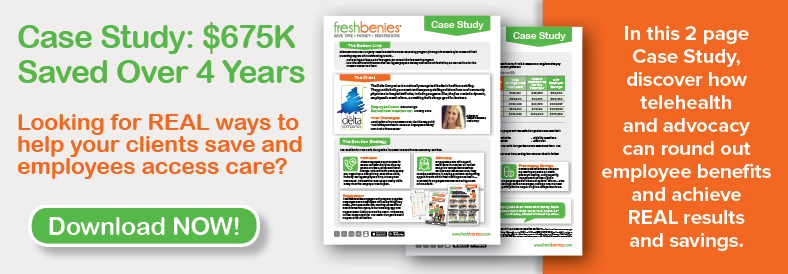WHAT HAPPENED TO THE GOP HEALTH CARE BILL? AND WHAT HAPPENS NOW?
It was about as close as you can get to a sure thing in politics. Since 2010, Republicans have complained about the Affordable Care Act, calling it one of the worst laws ever enacted. For the past seven years, they’ve vowed to repeal it. During President Obama’s terms in office, they voted over 50 times to do away with his signature legislation. In 2012, 2014, and 2016, they ran on the promise to repeal and replace Obamacare, and it appears that the third time was the charm – in the most recent election, Republicans retained control of the House, gained control of the Senate, and won the White House. Finally, they had the power to repeal this awful law that they all hated.
But last Friday, after 18 days of in-fighting among House GOP members, President Trump and Speaker Ryan made the decision to pull the American Health Care Act, the reconciliation bill introduced March 6th that would have done away with the individual and employer mandates, the individual and small group tax credits, expanded Medicaid, cost sharing subsidies, and billions of dollars’ worth of taxes while retaining the popular guaranteed issue provision and the Age 26 rule. House Republicans simply couldn’t get enough buy-in from their own party to pass the bill and send it over to the Senate. So what in the world happened? And what can we expect to happen next?
Let’s put it this way: while President Trump says that the members of the Freedom Caucus are his friends, and these conservative House members publicly praise the president and Speaker Ryan, they don’t always see eye to eye. To say the least, their relationship is a bit strained at times.
The complicated nature of their relationship was made clear in the most recent tweets from President Trump, in which he seems to be blaming Freedom Caucus members (along with Democrats of course) for the bill’s failure.


Both President Trump and Speaker Ryan said shortly after they withdrew the bill that they were going to let Obamacare implode (or explode depending on which tweet you read). Trump feels confident that the failure of the Affordable Care Act, which he says won’t take long at all, will make Democrats eager to negotiate on a bipartisan healthcare solution, but I’m not so sure. Right now, Democrats have the momentum after their first round victory, and instead of negotiating, they might use this opportunity to further sway public opinion.
Senator Bernie Sanders, who ran for President on the idea of universal healthcare coverage, has said that he will soon introduce a Medicare for All bill. He has long been a proponent of single-payer healthcare and already has a Medicare for All plan put together. It would be quite easy at this point for Sanders and other Democrats to argue that 1) Republicans say that the ACA is failing and should be replaced; 2) they didn’t actually have a unified plan like they had claimed; 3) the plan they did put forth would have increased prices and ripped coverage away from millions of Americans; and 4) what we should do instead is move to a government-run health care system that guarantees coverage for all Americans.
Whether this is actually a good argument or not, my bet is that the Medicare for All proposal will immediately have more public support than the 17% of Americans who supported the AHCA. While there’s not a chance in the world Sanders’ bill will pass in the next three or four years, strong public support for universal coverage could make it more difficult for Republicans to repeal the Affordable Care Act in the future.
Two additional challenges for conservative Republicans are President Trump’s willingness to fight with members of his own party and his prior endorsement of single-payer healthcare. Since 1999, Mr. Trump has made a number of public statements in favor of universal healthcare. Here are a few:
• In 1999, when Donald Trump was first considering a run for president, he told Larry King: “If you can’t take care of your sick in the country, forget it, it’s all over... I believe in universal healthcare.”
• In February, 2000, he told The Advocate: “I would put forth a comprehensive health care program and fund it with an increase in corporate taxes.”
• That same year, in his book The America We Deserve, Mr. Trump said: "We must have universal healthcare...I'm a conservative on most issues but a liberal on this one. We should not hear so many stories of families ruined by healthcare expenses...”
• And in a 60 Minutes Interview in September, 2016, Mr. Trump said: “I am going to take care of everybody. I don't care if it costs me votes or not. Everybody's going to be taken care of much better than they're taken care of now…the government's gonna pay for it.”
There are more examples, all cited in an Independent Journal Review article, in which President Trump praises universal or single-payer healthcare. It’s certainly not outside the realm of possibilities that he would revert to his previous stance if this movement started to gain some steam, and that would make it significantly more difficult for Republicans to repeal the existing health care law.
That doesn’t mean, however, that Republicans couldn’t make some improvements to the existing law. In fact, Paul Ryan had proposed a three-step plan to repeal and replace the ACA, and passing the American Health Care Act was just step one of this plan. Step two was to make regulatory changes that would make the remaining ACA provisions easier to live with. The Affordable Care Act gave tremendous power to federal regulators to write the rules implementing the health reform legislation, so Secretary Tom Price and other members of the Trump administration could re-write many of the rules without any new legislation. Step three was to pass other laws that would help expand coverage and reduce costs. Many of the ideas that President Trump and other Republican leaders have offered, such as selling insurance across state lines, pooling small groups, revamping Medicare, and speeding drugs to market, were not included in the failed AHCA; they were to be introduced in other legislation. If they were good ideas before, there’s no reason they wouldn’t be good ideas now. Lawmakers simply need to push them through if they feel they could help solve the problem.
The truth is, we really don’t know what’s going to happen at this point, and that’s a challenge for insurance advisers who are trying desperately to give their clients information that they can rely on. So here’s what I would suggest:
#1. Don’t focus on the details
Whatever ACA repeal, replace, or repair bill ultimately passes, it will be the result of a lot of negotiation—hopefully bipartisan negotiation—so there’s no way we can know at this point what the final version will look like. For that reason, there’s little use in studying every minute detail of every proposal that’s introduced; in all likelihood, those details will change.
#2. Don’t “wait and see”
Just because we don’t know the details yet doesn’t mean we have to take a “wait and see” approach. There’s a lot that we do know:
Health insurance premiums will continue to rise. That’s a given. Everyone wants to reduce the monthly costs, but there’s only so much that can be done from the insurance side. Until we get a handle on health care costs, premiums will keep going up.
Cost sharing will continue to increase as well. Again, this seems to be a given. To deal with rising premiums, employers and individuals tend to buy less insurance. That means higher deductibles, higher out-of-pocket limits, and disappearing copayments. People will continue to be responsible for a greater share of their up-front expenses.
Additional adjustments will be made. Along with increasing the cost sharing, carriers are continuing to make adjustments to drug formularies, preferred pharmacies, and provider networks. All of these adjustments increase costs for members and make it more difficult to access care.
As we review the various health care proposals, we can see that there aren’t a lot of ideas to change these trends, and any ideas that do become law won’t be effective right away; there’s usually a transition period. For instance, most of the changes in the American Health Care Act, with exception of the tax cuts, would not have gone into effect until 2020, long after the predicted demise of the ACA. That means that even if you’re optimistic about lawmakers’ ability to reverse some of these health care trends in the long term, we still need to deal with them in the short term.
#3. Realize that our clients expect solutions
While we may not be able to change the trends of rising premiums, rising out of pockets, rising drug costs, and shrinking provider networks, we can certainly offer some solutions to help our clients deal with those trends. And our clients expect those solutions. They’ve gotten to the point that they can’t take any more away from their benefits package if they still want the employees to view them as benefits, so if we want our clients to keep their health coverage, we have to offer solutions to help fill some of the holes. Here are a couple ideas:
- Health Savings Accounts help people budget for unexpected health care expenses and pay for services previously covered by copayments with tax free dollars.
- Worksite Products like accident plans and critical illness policies can help cover some of the higher deductible expenses and preserve people’s HSA funds.
- Non-insurance products like telehealth and doctors online services can help employees avoid the long lines at the doctor’s office and save some money in the process.
- Prescription Savings Networks and transparency tools offer people an alternative to the insurance company’s discounts and give them the information they need to become better healthcare consumers.
Health insurance continues to evolve. As part of that process, we’re seeing fewer services covered under the group or individual plan and the need to turn to other solutions to help pay some of these first-dollar expenses. If you’ll package together some of those solutions and present them as a single strategy to your clients, you can help them through the uncertainty that will continue to plague our industry for the foreseeable future.
Now it's your turn! How are you leading your clients through the uncertainty of the health care legislation? Comment below or email me at eric@freshbenies.com.
















